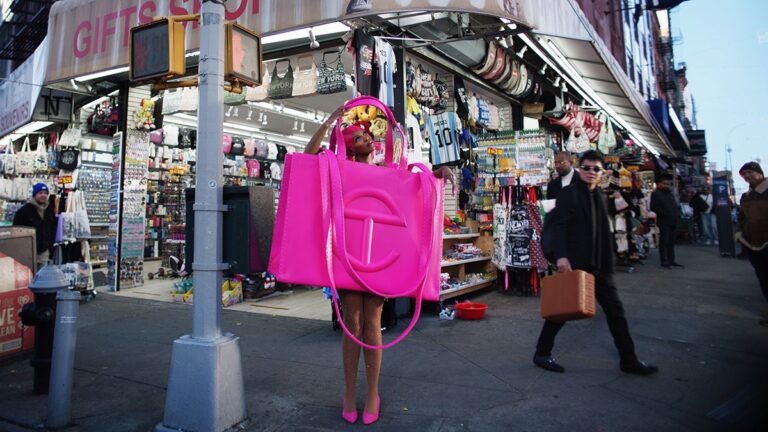“Though it’s also just a space, too,” Chait adds. “As we progress, it’s space that we can actually ‘add to’ or ‘remove from’, so we wanted to keep things slightly modular.”
Clothes are meant to be tried on
It goes without saying that fashion is a tactile business and for a brand rooted in knitwear like The Elder Statesman, it’s imperative that customers can touch and feel the fabrics; that they can understand the quality they’re buying into at such a high price point (a pair of socks starts at $120).
Similarly, when a brand’s language is based upon unconventional silhouettes and versatility, like Kiko Kostadinov and Telfar, the in-store experience is essential for both first-time buyers and return customers. A women’s long sleeve that has three separate neckholes, for example, and is made to twist around the torso twice before being slipped over the arms, might require a sales associate’s assistance.
“Our product can be very rich in detailing, fabric development and cut. Really the only way to appreciate the product’s full potential and intent is in person,” Kostadinov says. Many of Telfar’s garments are genderless, which is a sizing category that’s notably difficult to market online. “We are a Black brand making conceptual unisex clothes. You have to try them on in person,” the designer says. “It was always the plan to make a store.”
A gathering place
It’s too early to tell whether investments of independent designers in bricks-and-mortar retail will pay off — after all, many stores are one unexpected rent hike away from being forced to shutter. But there’s something to be said for pushing forwards in new, exciting ways and diversifying sales methods.
For many of these new shoppable spaces, the word ‘store’ simply doesn’t do the next-level retail experience justice. Not unlike KidSuper’s immense ‘Dream Factory’, which opened earlier this year in Brooklyn, Telfar has built a New York headquarters at 408 Broadway from the ground up. It encompasses a physical retail shop, an in-house atelier and a public access television studio, which is not only the filming location for the brand’s Telfar TV, but also a place where customers can shoot their own content, broadcasting their fit pics onto the building’s facade. Its opening marks a major moment for the community.
“It’s a total representation of us,” Clemens said of the flagship. “It’s a cultural space.”
At the end of the day, it’s about much more than just shopping. “It’s really important that people can hop by, hang out and dream,” says Chait.
Comments, questions or feedback? Email us at feedback@voguebusiness.com.


